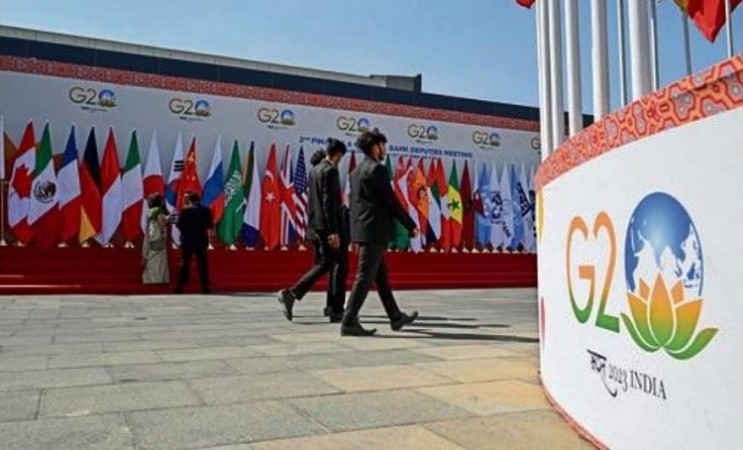
The G20 Trade and Investment Ministerial Meeting (TIMM) is scheduled to commence in Jaipur on August 24, 2023.
Over the course of two days, from August 24th to 25th, the TIMM will take place, followed by the fourth and final meeting of the Trade and Investment Working Group (TIWG) under India's G20 Presidency. This preceding TIWG meeting is slated for August 21st and 22nd in Jaipur. It's worth noting that the preceding three TIWG meetings occurred in Mumbai, Bangalore, and Kevadia, respectively.
The combined attendance for both events is projected to exceed 300 delegates, inclusive of trade ministers, secretaries, and delegation leaders from G20 member countries, invitee nations, regional coalitions, and international organizations. The primary focus of these gatherings is to establish consensus on global trade and investment matters, alongside implementing practical propositions outlined by the Indian Presidency.
Throughout the initial and second TIWG meetings, the assembly concentrated extensively on five Priority Issues (PIs), which encompass Trade for Growth and Prosperity, the resilience of Trade and Global Value Chains (GVCs), the integration of Micro, Small & Medium Enterprises (MSMEs) into the world trade arena, Logistics for Trade, and the reformation of the World Trade Organization (WTO). These topics were thoroughly deliberated upon among the G20 members and invitee countries. Additionally, Knowledge Partners delivered presentations during these sessions, providing comprehensive insights into each subject and their corresponding outcomes. Drawing from the viewpoints and suggestions voiced by the G20 members and invitee countries, the Indian Presidency has formulated pragmatic action-driven proposals for each of the priority issues, which are reflected in the Ministerial Statement and its accompanying documents.
Given the present challenges facing global trade growth, the G20 has an opportunity to reiterate the significance of a rules-based multilateral trade system centered around the WTO. This system is considered indispensable for advancing shared goals of comprehensive growth, innovation, job generation, and sustainable development. The influence of technology on cross-border trade is undeniable, with paperless trade systems poised to curtail transaction costs, optimize smaller shipments, and facilitate cost-effective international operations in an increasingly digitized global landscape. This technology-driven concern has gained significant prominence within the G20 discussions.
Addressing the barriers impeding the integration of Micro, Small, and Medium Enterprises (MSMEs) into international trade is of paramount importance, given their pivotal role in job creation and GDP augmentation. Consequently, the G20's focus on rectifying the inadequate access to business and trade-related information, finance, and markets that hinder the involvement of MSMEs in global trade is well-placed.
Considering that a substantial portion of global trade is channeled through Global Value Chains (GVCs), the G20 TIWG's deliberations on establishing a resilient mapping framework for GVCs in the face of future disruptions are crucial.
The G20 TIWG has also committed to prioritizing WTO reform to foster consensus among nations, supporting ongoing reform efforts and working collaboratively towards meaningful outcomes at the upcoming Thirteenth Ministerial Conference (MC13).
Member countries' interventions and suggestions regarding the Priority Issues have greatly aided the Presidency in drafting the Ministerial Statement and its accompanying materials. The discussions during the TIWG sessions have contributed to refining the drafts, showcasing the G20 TIWG's unwavering dedication to fostering inclusive global trade.
Anticipated to catalyze trusted collaboration among G20 members, the TIMM is poised to expedite global trade and investment. The objective is to collectively devise strategies to capitalize on existing opportunities and make growth transparent and inclusive for all, aligning with India's G20 theme of Vasudhaiva Kutumbakam, signifying the global community as one family.
Acknowledging the interconnected nature of the five proposed Priority Issues, the Indian Presidency orchestrated Side Event Seminars on Trade Finance, Trade and Technology, and Trade Infrastructure in Mumbai, Bengaluru, and Ekta Nagar. These seminars aimed to unite stakeholders across all levels of governance to brainstorm collective actions required to establish a robust global trade ecosystem.
During the TIMM, an experiential zone will be set up to showcase a diverse array of Indian tea, coffee, spices, and millets for the delegates. Furthermore, an exhibition highlighting the cultural heritage of Jaipur, known as the Pink City, will be on display, providing a glimpse into its rich cultural tapestry.